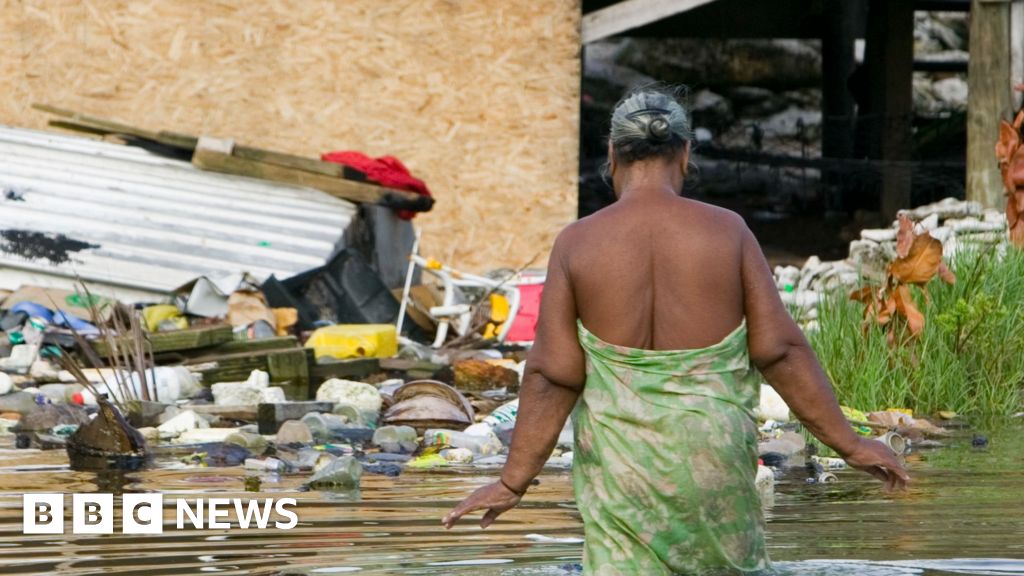
In an unprecedented move, more than a third of Tuvalu’s citizens have applied for a newly established climate change visa that would allow them to migrate permanently to Australia. The visa, which opened for its first intake on June 16, has already seen a significant number of applications, suggesting that the program may be highly oversubscribed. Each year, only 280 visas are available to Tuvalu citizens through a random ballot system.
This initiative, described by Australia’s foreign affairs department as a groundbreaking response to climate-induced displacement, is particularly crucial for Tuvalu. The small Pacific island nation, with its highest point just five meters above sea level, is one of the most vulnerable countries to climate change.
Visa Application Surge
As of June 27, there have been 1,124 applications submitted, covering 4,052 individuals when family members are included. This is a significant portion of Tuvalu’s total population of 10,643, as recorded in the 2022 census. The overwhelming interest highlights the urgency felt by Tuvaluans as they face the existential threat posed by rising sea levels.
“For the first time there is a country that has committed legally to recognise the future statehood and sovereignty of Tuvalu despite the detrimental impact of climate change-induced sea level rise,” said Prime Minister Feleti Teo in a statement last year.
Benefits and Implications of the Visa
The Pacific Engagement visa offers holders indefinite permanent residency in Australia, along with several benefits. These include access to Australia’s Medicare system, childcare subsidies, and the ability to study at educational institutions with the same financial support as Australian citizens. The entry fee for the 2025 ballot is set at A$25 (£11.93, $16.37), with applications closing on July 18.
This development is part of the broader Australia-Tuvalu Falepili Union, announced in August 2024. The agreement includes commitments from Canberra to support Tuvalu in the face of natural disasters, public health emergencies, and potential military threats.
Historical Context and Future Outlook
Tuvalu’s precarious situation is not new. The island nation has long been at the forefront of climate change discussions, often cited as a harbinger of the challenges that many low-lying countries may face in the coming decades. Scientists from NASA have projected that by 2050, most of Tuvalu’s land and critical infrastructure could be submerged during high tides.
This visa program represents a proactive step in addressing the potential humanitarian crisis that could unfold as a result of climate change. However, it also raises questions about the future of nations like Tuvalu and the international community’s responsibility to support them.
By the Numbers: Tuvalu’s population stands at 10,643, with 4,052 individuals applying for the climate visa, indicating a significant portion of the nation is seeking relocation options.
Expert Opinions and Broader Implications
Climate experts have praised Australia’s initiative as a model for other nations to follow. Dr. Jane Smith, a leading climate policy analyst, remarked, “This visa program is a testament to the growing recognition of climate change as a driver of human migration. It sets a precedent for how countries can offer refuge to those displaced by environmental factors.”
Meanwhile, the international community continues to debate the best approaches to managing climate-induced migration. The Tuvalu visa program could serve as a blueprint for similar initiatives worldwide, potentially influencing global migration policies.
As the application deadline approaches, the world will be watching closely to see how this pioneering visa program unfolds. The success of this initiative could pave the way for more comprehensive solutions to the challenges posed by climate change, offering hope to vulnerable populations around the globe.







